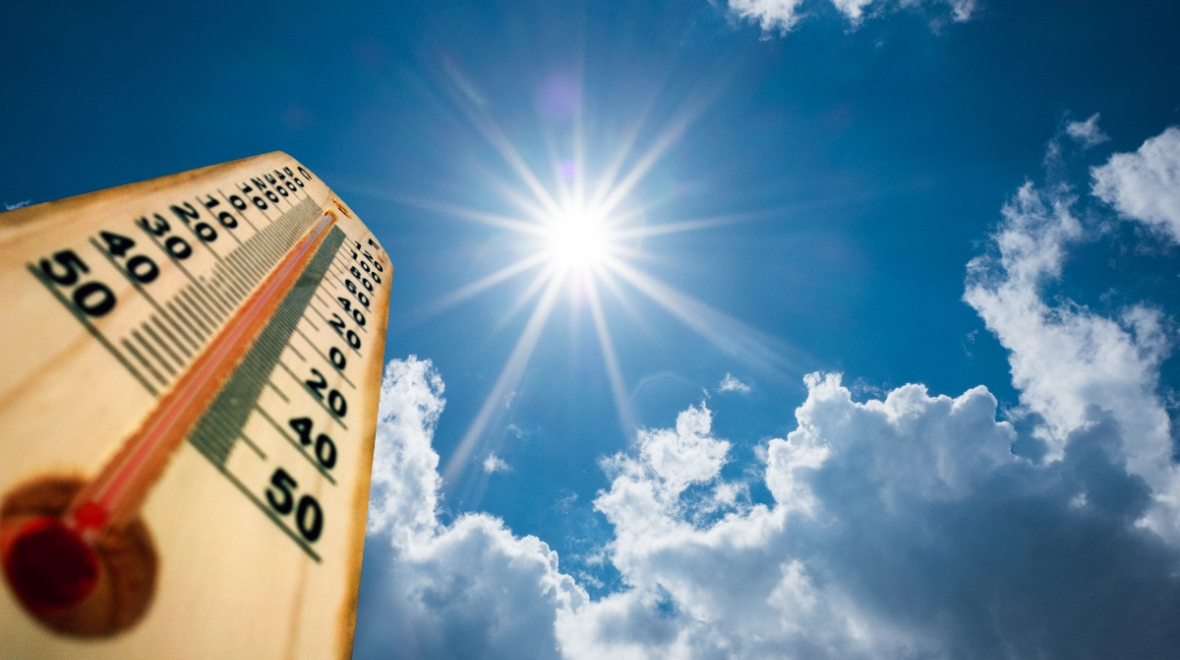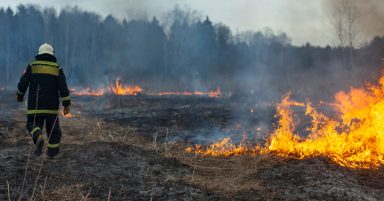Temperatures in Scotland have reached as high as 18°C so far in November, and it could get even hotter.
The latest data from the EU’s Copernicus Climate Change Service (C3S) shows that global temperatures from January to October were 0.71C more than the average from 1991-2020.
Researchers believe 2024 is “virtually certain” to be the hottest year on record, with temperatures 0.16C higher than the same period in 2023—the hottest year to date.
On Wednesday, the Met Office said Kinloss in Moray reached 17.8°C as part of what meteorologists have described as the Foehn effect.
Kinloss could even be hotter on Thursday, reaching a high of 18°C, it was claimed.
In Altnaharra in the Highlands, temperatures were as high as 17.5°C, while in Auchincruive in South Ayrshire 16.9°C was recorded.
According to the Met Office, Cardiff and London temperatures are predicted to hit 15°C, while Manchester and Newcastle could reach 14°C on Thursday.
Data shows that October 2024 was the second-warmest month globally, second only to October 2023, and was 1.65°C above pre-industrial levels.
It was the 15th month in a 16-month period that the global average air temperature was more than 1.5°C above pre-industrial levels.
The figures, which are based on computer-generated analyses and the “ERA5” dataset, which uses billions of measurements from satellites, ships, aircraft and weather stations around the world, come as countries prepare to meet for the latest round of UN climate talks, Cop29, in Azerbaijan.
Samantha Burgess, deputy director of the Copernicus Climate Change Service (C3S) said: “After ten months of 2024 it is now virtually certain that 2024 will be the warmest year on record and the first year of more than 1.5°C above pre-industrial levels according to the ERA5 dataset.
“This marks a new milestone in global temperature records and should serve as a catalyst to raise ambition for the upcoming climate change conference, Cop29.”

Insight Philip Petrie STV News Weather Presenter
In a recent report from Copernicus it was revealed that it is virtually certain that this will be the world’s warmest year ever and that’s fairly obvious to feel at the moment as we are experiencing some very mild conditions with temperatures above average for the time of year.
Last night, we were close to seeing our warmest November night on record, with places like Kinlochewe and Achnagart recording values we would normally see on a night in May.
Our previous warmest November night was 14.9°C recording in Banff on November 11, 2022.
The reason for this is that high pressure is dominating our weather at the moment, keeping things settled and also putting us into a southerly airflow, where we are dragging warm, mild air from the south.
Those southerly winds are warming and drying the air and this is why we are seeing locally high temperatures for November.
Yesterday we recorded a high of 17.8°C in Kinloss and 16.9°C in Auchincruive, which is exceptional to see highs of 17°C and 18°C in the month of November.
The mild conditions are set to last throughout the weekend and into next week when high pressure reasserts itself.
In recent days the Nevis Range have announced that due to the fact winters are too unpredictable now they are not going to open the slopes at all in January and will focus their efforts on February and March in the hope there will be more snow then.
Follow STV News on WhatsApp
Scan the QR code on your mobile device for all the latest news from around the country
























